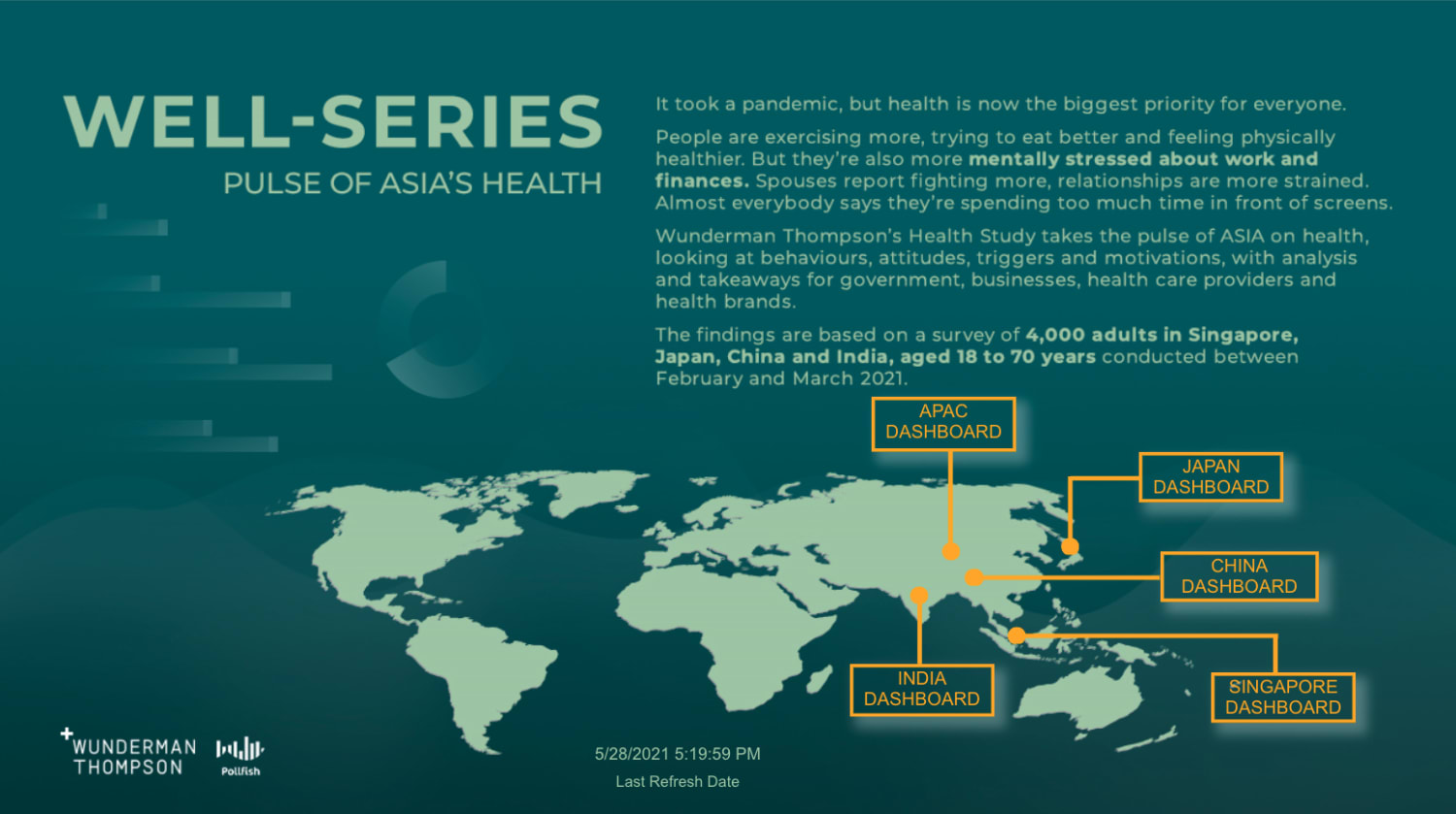1. SINGAPORE’S OVERALL SCORE IS 6.1 (ON A SCALE OF 10) - SHOWING THERE’S PLENTY OF ROOM FOR IMPROVEMENT
While physical health and relationships score moderately, healthy actions, financial health and mental health brings the overall score down to 6.1. This number is highest among the educated and high income earners, but lowest among women and unemployed.
2. MOTIVATION DOESN’T FOLLOW THROUGH TO REALITY
66% of people are more motivated to be healthy and 72% have declared their physical health “very much” a priority – indicated through more exercise and healthier meals at home, yet 61% are living more sedentary lives, 73% say they’re spending more time in front of their screens and 46% are working longer working hours, contributing to stress and anxiety levels.
3. MENTAL HEALTH IS A SIMMERING PROBLEM
Almost a quarter of Singaporeans suffer anxiety and depression, largely driven by financial and work stress, and 25% have considered suicide at least once in the last year, with that number jumping significantly among the unemployed.
4. YET MENTAL HEALTH CONTINUES TO BE A STIGMATISED TOPIC
68% believe there is a stigma against mental health issues in Singapore, with more than 65% avoiding the topic with their family, even when there is an issue. Yet poor mental health leads to real societal problems – poor productivity at work, poor health habits, combative behaviours and even violence.
5. RELATIONSHIPS HAVE SUFFERED OVER THE LAST YEAR
49% agreeing that family stress has increased over the past year and the relationships that are suffering are the ones between parents and children and spouses, with 21% of respondents reporting more stress and strain on those relationships.
6. HEALTH SATISFACTION HAS EXPOSED INEQUITIES WITHIN SOCIETY
If you’re a male, earning over $75,000 and above, have post-graduate qualifications and are employed, you are significantly more likely to be satisfied with your physical and mental health. Conversely, those who are unemployed and lower income are less likely to be proactive with their health decisions and women are feeling less healthy than men and exhibit unhealthier behaviours, such as eating poor foods and not exercising.










